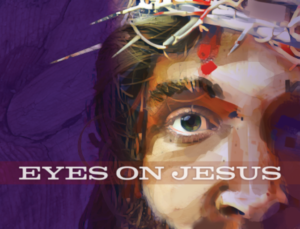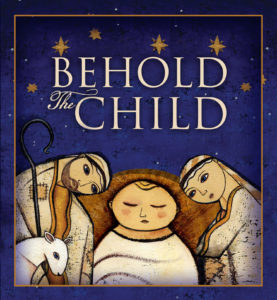Lent, Crazy Latin Words and What Happens When You Die
We have begun the 40-day journey towards Easter, hopefully reminding each of us of the 40-year wandering of God’s people in the wilderness, awaiting entry into the Promised Land, as well as the 40-day fast of Jesus in the wilderness, enduring the Temptation of the Devil. “Lent” comes from an old English word “lencten” which is best understood as “lengthen”. According to our Church Year, Easter falls in the Spring. Thus Lent is simply a Spring season where the days are getting longer, prior to the Church’s observance of Easter. For early Christians it was a marvelous thought and worthy of theological connection: as daylight increased so did the anticipation of the Light of the World enacting and fulfilling His justifying work through His life, death and Resurrection. Thus, our 40-day Lenten Season focuses on the Passion of our Lord. For this reason, during our Wednesday Midweek Services (7:00pm), we will hear the reading of the Passion, a combination of all four Gospels. As Jesus ministered and walked towards Jerusalem and the Temple, the suffering servant and Lamb of God who takes way the sins of the world, so we journey throughout these 40-days, all the while seeing the Light that has come into the world to conquer the darkness.
The Sundays in Lent (8:15am & 10:45am) are similarly structured. You’ll notice that not only are they numbered (1st, 2nd, 3rd, etc), but that there is also a strange word listed by their title (Invocabit, Reminiscere, etc.). These traditional titles of the Sundays in Lent are taken from the Historic Introit appointed for each Sunday and listed by their Latin name. Here’s a brief summary of the five Sundays in Lent for your meditation:
Eyes on Jesus
 We are soon to enter a most holy and sacred time of the church year. Historically (and as we will observe here at Advent on February 2nd), the Transfiguration of Our Lord serves as a conclusion to the Epiphany season. From there we begin our pre-Lenten preparations with the “Gesima” Sundays, a countdown to Easter. The season takes a much more somber and penitential turn with Ash Wednesday, falling this year on February 26th. During Lent we will refrain from singing the Gloria as well as Alleluias. These are reserved for the joyous occasion of Christ’s Resurrection on Easter Sunday.
We are soon to enter a most holy and sacred time of the church year. Historically (and as we will observe here at Advent on February 2nd), the Transfiguration of Our Lord serves as a conclusion to the Epiphany season. From there we begin our pre-Lenten preparations with the “Gesima” Sundays, a countdown to Easter. The season takes a much more somber and penitential turn with Ash Wednesday, falling this year on February 26th. During Lent we will refrain from singing the Gloria as well as Alleluias. These are reserved for the joyous occasion of Christ’s Resurrection on Easter Sunday.
As we have done in the past, a Lenten theme has been chosen for our meditation, beginning on Ash Wednesday. Our theme this year is “Eyes on Jesus.” A devotional booklet will be provided for each of our households, that we may pray, watch and learn together. New this year, a Lenten Calendar will also be provided to guide us, young and old, down our Lenten path. As we marvel at the glory of Christ’s divinity, let us fix our eyes solely upon Him who yet works marvelous deeds for us children of man.
O come, let us fix our eyes on Jesus, the founder and perfecter of our faith, who for the joy that was set before Him endured the cross, despising the shame, and is seated at the right hand of the throne of God. (Gradual for Lent, based on Hebrews 12:2)
When the characters in the Passion narrative look at Jesus, what did they see? In most cases, people misunderstood who He is and what He was doing. In some cases, by faith, people recognized Him aright. Our Lenten series this year, based on the Gospel according to St. Mark, will examine how the various people around Jesus viewed Him—and how we should view Him. We will “fix our eyes” on what Jesus has done to save us from our sins by His holy, precious blood and innocent sufferings and death, and celebrate what God sees on account of His work: our justification for His sake.
On Ash Wednesday, we will see how, in spite of Jesus’ repeated predictions about His upcoming Passion, the disciples with “Misjudging Eyes” fail to recognize that soon He will not be with them, and they cannot see the anonymous woman’s anointing of Jesus as preparation for His burial. But Jesus sees her actions as a beautiful deed that will be proclaimed throughout the world wherever the Gospel is heard.
At our midweek service after the First Sunday of Lent, we will look through Judas’s “Betraying Eyes” and learn why he did this awful deed. Yet the behind-the-scenes-reality is that Jesus was “handed over” (another way of translating the verb for “betray”) by God the Father Himself, so that Jesus could die for the sin of the world.
“Sleepy Eyes” is the theme for the second week of Lent. In Gethsemane, Jesus’ inner circle of Peter, James, and John cannot keep their eyes open to watch and pray with Jesus for even an hour, while Jesus comes to see that His Father’s will is that He drink the cup of God’s wrath when He comes to the “hour” of His suffering.
In the third week of Lent, we stare into the “Denying Eyes” of Peter and the other apostles. They could not see how they could ever fall away from Jesus, but after Jesus is betrayed by Judas, ten of them flee, and
Peter—when he is spotted by a servant girl and sees that his own neck is on the line—sees fit to deny Jesus, which leads to his own eyes weeping in remorse. We sinners likewise deny our Lord in many ways, but Jesus denied Himself to take up the cross for our salvation.
“Murderous Eyes” is the theme of week 4 in Lent. The chief priests and scribes saw Jesus as an obstacle to be rid of by murdering Him through the Roman judicial system. Yet during the Passover festival, they would unwittingly bring about the Father’s sacrifice of the ultimate Passover Lamb.
In the fifth week of Lent, we look through the “Worldly Eyes” of Pilate, the Jewish leaders, and the Roman soldiers. Pilate can only view matters in a worldly, pragmatic way, wishing to placate the worldly Jewish leaders and crowd, so he consents to handing Jesus over for crucifixion. The soldiers see the opposite of a worldly king, but their ironic hailing of Him as “King of the Jews” proclaims who He really is. The world looks for power and glory; God’s way is suffering and the cross.
On Maundy Thursday, there is “More Than Meets the Eye” to the Lord’s Supper. We will look into the Old Testament background of the Last Supper and rejoice in the mystery that Jesus, in and with, bread and wine, gives us His body and blood in order to deliver to us the benefits of His Passion.
On Good Friday, we look through “God’s Eyes” to see what is happening during the Passion: the once-for-all atonement for the sin of the whole world and the justification of all sinners on Easter.
“Resting Eyes” is the theme for Holy Saturday. Various disciples rested their eyes upon the dead Jesus, cared for His body, and buried it. As Mary Magdalene and Mary the mother of Jesus rest their eyes upon the sealed tomb and contemplate further anointing of His body the next day, they cannot see that Jesus’ own eyes are merely resting temporarily, and Easter morning will bring a dramatic reversal.
Finally, Easter Sunday gazes upon “Angel Eyes.” The angel in the tomb knows the whole story of Jesus’ resurrection. When he sees the women, he proclaims the Gospel to them, shows them where Jesus’ body had formerly lain, and tells them that they can see Jesus themselves in Galilee. Likewise, the “angels” or messengers of the Church in the apostolic ministry tell God’s people where they can find Jesus and His salvation in the Means of Grace.
Eyes on Jesus will continuously focus our eyes on Jesus Christ and Him crucified, buried, and risen for our justification. This is a vision that will never disappoint, for by trusting in Jesus, He promises that we will gaze upon His beautiful face now by faith and forever in heaven!
Rev. Marcus J. Mackay, Sr. Pastor
EPIPHANEIA
After the twelve days of Christmas have concluded, the Church celebrates Epiphany (a Greek word, transliterated above, which means “manifestation”). It is a major festival in the Church Year, which unfortunately, often falls by the wayside after the excitement of Christmas. The celebration of Epiphany covers the events that follow the birth of Christ, namely the visit of the Magi (wisemen from the East, at least two but probably more, who brought royal gifts and worshipped at the feet of the one true King). They followed a God-given and created star that led them (probably from the area of Babylon, the East, which should make you recall the Captivity of God’s people, both the Northern and Southern Kingdom, as well as faithful wisemen such as Daniel, Shadrach, Meshach and Abednego). While they are often included in our Christmas Nativity sets and Manger scenes, they probably didn’t arrive in Bethlehem until some time after Christ’s actual birth, which is when the star appeared! Regardless, Epiphany reminds us that Christ has come for all people and that the Gospel is to be shared with the whole world.
“For I am not ashamed of the gospel, for it is the power of God for salvation to everyone who believes, to the Jew first and also to the Greek (Gentiles! Or you and me . . . the whole world). For in it the righteousness of God is revealed from faith TO faith, as it is written, “The righteous shall live by faith.” Romans 1:16-17
While Christmas emphasizes our Lord’s humanity (incarnation = God taking on human flesh), Epiphany serves to manifest His divinity, including the kingly adoration of the Magi, Jesus’ Baptism and His first miracles (most notably changing water into wine at Cana in Galilee). Thus, the Church Year is a representation of the life of Christ. Historically, these observances are known as “Major Festivals”. Here is the list:
- The Nativity of Our Lord (December 25th),
- The Epiphany of Our Lord (January 6th),
- Ash Wednesday,
- Palm Sunday,
- Holy Week [Monday, Tuesday, Wednesday, Holy (Maundy Thursday),
- Good Friday,
- Holy Saturday (Vigil)],
- The Resurrection of Our Lord,
- The Ascension of Our Lord,
- The Day of Pentecost and
- The Holy Trinity.
As you read through the list, you can easily see why the Church celebrates and observes such festivals: it’s all about Jesus, the life of the world. Truly, we are not to be ashamed of the Gospel!
In almost two decades of serving the Church, I have often lamented how The Epiphany of Our Lord gets moved around and unwittingly ignored. While Christmas ALWAYS falls on December 25th, Epiphany seems to be relegated to the closest Sunday that doesn’t interfere. Christmas decorations are often removed and God’s people are left waiting for Lent and Easter! Historically, there is much evidence to show that the early Church actually emphasized and celebrated January 6th (Epiphany) over and above Christmas! Can you imagine?
Let’s bring Epiphany back!
This year, I will be asking our Altar Guild to leave our Christmas decorations up just a little bit longer (we’ll take everything down AFTER Epiphany) AND we will have a special Epiphany service ON JANUARY 6th! I know it’s a week night and not everyone will be able to attend (my boys will probably be at basketball practices or games), but for those that are able, Pastor Grady and I will be here to observe this MAJOR FESTIVAL and share the Lord’s gifts with you in the Divine Service. On that note, we will also add TWO more MAJOR FESTIVALS this year (also occurring on days other than Sunday): Holy Saturday (the night before Easter, where we will gather outside by a bonfire and prepare for His Resurrection – we’ll even have S’mores afterwards for the kids) and The Ascension of Our Lord (always on a Thursday, 40 days after Easter).
Behold the Child!
Advent is soon upon us. What a glorious time of year as we prepare for the coming (advent) of God in the flesh made manifest! A devotional booklet has been placed in your member mailbox, for you (& your family) to use. Our pastoral prayer is that such devotions and study further unite us as a faith family here at Advent Evangelical Lutheran Church. Please also plan your upcoming weeks accordingly, as we will now have a family meal and a special worship service during these Wednesdays in Advent. In the midst of the holiday bustle, let us take but a brief pause each week to be filled with the light and strength of God’s mercy and grace. May the Lord bless and keep you and your family as we prepare for the coming of the Messiah…behold the Child!
Pr. Mackay
 Behold the Child!
Behold the Child!
God the Father is reconciled.
We long for reconciliation—a marriage healed, the return of a prodigal child, the open arms of a formerly harsh parent. Advent is just the season for reconciliation. It is a penitential season, calling us to examine ourselves, acknowledge our sin with contrition, and trust that our sin is forgiven for the sake of Christ. Such self-examination reveals that the fault for our broken relationships is not one-sided. The sin visited upon me by another has driven a wedge between us, but so has my sin. Part of the distance between me and others is due to my sinful actions—my sinful refusal to forgive, my sinful pride that will not admit my fault, my sinful contentment with a cold shoulder.
Advent calls us to repent of our divisions. Advent calls us to rejoice in reconciliation. Though you can forgive another even when he refuses to acknowledge his fault, reconciliation is found when both parties are willing to admit their culpability, seek forgiveness, and amend their ways. That can seem so difficult. It is hard enough for one sinner to confess his sin and trust that the Lord purges it from his life. How much more challenging it is for two sinners to do so. Yet that is exactly what Christ works among and within us. He grants us confidence in His forgiveness so that we forgive one another, receive one another’s forgiveness, and are thus reconciled.
Reconciliation with some remains ever elusive. We hunger for it; we pray for it. Yet the distance remains. When a parent apologizes to a child so that they embrace for the first time in decades, we rightly rejoice. When our longing is not realized, sorrow results.
The only consolation amid such sorrow is the certainty of your reconciliation to the Father. It is certain because it is not dependent upon sinners humbling themselves in repentance. It is certain because it is dependent upon the sinless Son of God humbling Himself to take on human flesh and be born of a virgin.
That is the glorious, biblical proclamation found in “The Quempas Carol.” We are blessed to hear therein the refrain, “God’s own Son is born a child . . . ; God the Father is reconciled.” This is not wishful thinking driven by our longings. It is reality driven by Christ.
A New Translation
Dear blessed saints at Advent,
A dear friend of mine, and fellow LCMS pastor, Rev. Ryan Loeslie, recently translated a mini-article that was included in the September 10th, 1907 issue of “Der Lutheraner” under the title Warum ich auch bei Regenwetter in die Kirche gehe. This magazine was the forerunner of the “Lutheran Witness”. I share it with you, as he has, for “timeless encouragement to be in God’s house when Sunday morning comes.”
Peace be with you,
Pastor Mackay
Why I Also Go To Church When It’s Raining
- Because God sanctifies every Sunday through his Word and makes no exceptions just because it is raining.
- Because I expect that our pastor will be tending to his duties, and I would be very astounded if he remained at home
because of the weather. - Because my presence will be all the more necessary at church, the less the attendance unfortunately is on such days.
- Because my example will have an influence on others under all circumstances, whether I attend worship or stay away.
- Because I see that the unchurched people, even the weakest among them, do not abstain from their amusements just
because it is raining. - Because the life to which a Christian is called may never be dependent on the change of the barometer, and because
my behavior towards God’s Word is a measurement of my love towards him. - Because I make the observation: those who use the excuse not to go to church because of the cold, heat, or because
it is raining – these also make excuses when the weather is beautiful. - Because the man who shrinks away because of such small difficulties may finally fear hindrances which are only
figments of his imagination. Whoever follows the Lord from afar, as Peter did on the night of Holy Thursday, he easily
is in danger of denying him completely. - Because it can be, that according to God’s will, a special blessing awaits me in church on a rainy day.
- Because I do not know how many Sundays I have left on this earth.
This article may also be found at https://steadfastlutherans.org/2019/10/why-i-also-go-to-church-when-its-raining/





